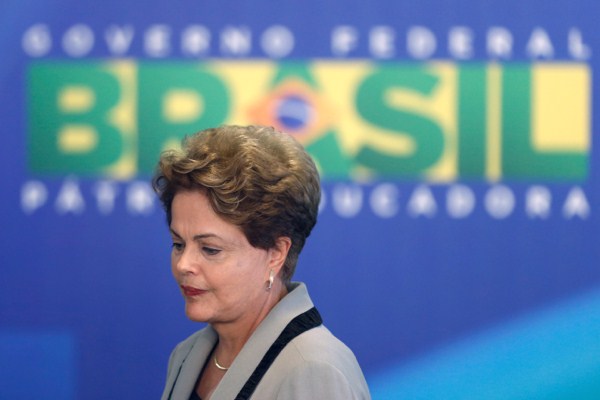2015 has already been a very difficult year for Brazilian President Dilma Rousseff. After a hard-fought re-election last October, the most competitive in the past two decades, Rousseff is now confronted with the need to implement meaningful fiscal adjustments amid declining approval ratings and popular unrest, after hundreds of thousands took to the streets in protest Sunday. The series of negative developments since her re-election has been dramatic but is likely to get even worse, with Rousseff in the eye of a political perfect storm.
The scandal and ongoing investigations surrounding state-controlled oil giant Petrobras are the biggest concern, having implicated major Brazilian construction companies and dozens of politicians in an extensive kickback scheme. The costs of the scandal will be felt far beyond Petrobras and the oil sector, as the exhaustive investigations will prolong the disruption of investments in infrastructure and energy. Many construction companies, now locked out of credit markets, are struggling to stay afloat, while Petrobras has slashed its investment plans and crippled its network of suppliers. The risk of contagion from this sector to the broader economy looms large, further dampening growth forecasts for this year.
Politically, Rousseff is likely to become more isolated as members of the ruling coalition face prosecution. The Supreme Court has already authorized investigations of 34 sitting politicians for alleged involvement in the kickback scheme, leading to more tension between Rousseff and her allies. On Tuesday, the main opposition said it would call on the court to investigate Rousseff, too. In addition, Congress has launched new probes and will seek to score political points by uncovering more wrongdoing. All this will drag into 2016 and seriously impact Rousseff’s capacity to govern.

